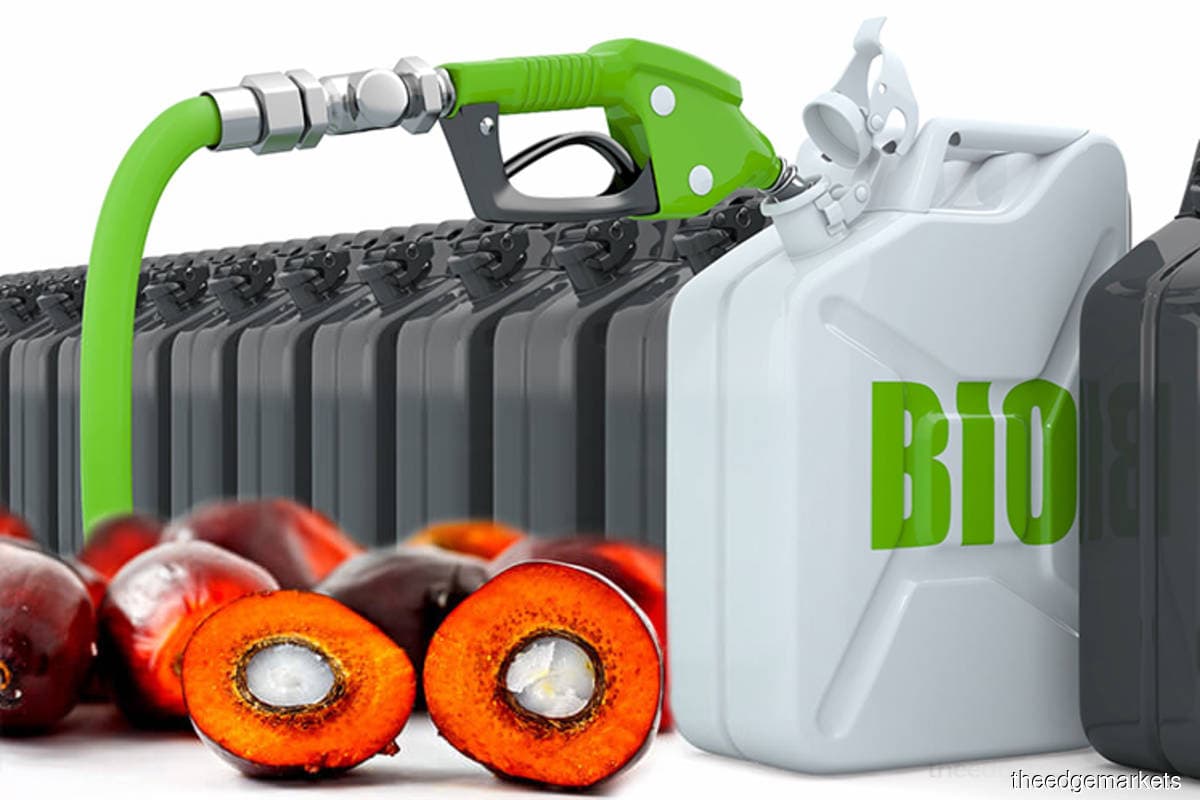
KUALA LUMPUR (April 26): The Malaysian Biodiesel Association (MBA) said it is against any move to reduce or stop the biodiesel mandate in the country.
It was referring to the Malaysian Palm Oil Board’s (MPOB) call for countries to reconsider food versus fuel priorities, to ensure adequate supply of palm oil for use in food, following Indonesia's ban on palm oil exports.
“The MBA would like to urge MPOB to engage the biodiesel industry before taking any precipitative action.
“The palm oil industry as a whole, both upstream and downstream biodiesel, would suffer from any such action as it would result in CPO (crude palm oil) price crashing to a very low level.
“This in turn would affect the over three million smallholders globally,” MBA said in a statement.
“The association, with its 18 biodiesel producing members and a combined installed capacity of 2.3 million tonnes plus an investment close to RM 2.1 billion and its auxiliary industries, would like to seek an urgent discussion with MPOB on this matter,” it added.
MBA said Jakarta’s decision to ban palm oil exports is aimed at protecting its domestic cooking oil market.
Indonesia, however, did not retract its biodiesel mandate, while other countries like the US, Argentina and Brazil, as well as the European Union, have not come up with any recommendations to retract their biofuel programmes, noted MBA.
“The situation for Malaysia is completely different. We are mainly an export-oriented market with a very small domestic market.
“As such, Malaysia should not reduce or stop its biodiesel mandate as the biodiesel industry hardly consumes one million tonnes of palm oil annually; against over 40 million tonnes used globally.
MPOB director-general Dr Ahmad Parveez Ghulam Kadir said exporting countries and importing countries need to have their priorities right, as this is the time to temporarily reconsider food versus fuel priorities.
“It's very important for countries to ensure available oils and fats are used for food and ... temporarily stop or reduce their biodiesel mandates," he was quoted as saying by Reuters on Monday (April 25).
Indonesia, the world's top producer and exporter of palm oil, sent shockwaves through the market on Friday (April 22) when it announced that it would impose a ban from April 28.
This is in addition to global edible oil supplies being choked by adverse weather, along with Russia's invasion of Ukraine, and where consumers now around the world will have no option but to pay top dollar for supplies, said the report.
MBA, in its statement, pointed out that the global supply and demand of vegetable oils is controlled by a number of factors.
“Without doubt, the current Russia–Ukraine war further worsened the global vegetable oil supply chain constraints, since Ukraine is the world’s largest producer of sunflower oil.
MBA said drawing up a balanced global fuel versus food policy is a complex and strategic matter.
“Every country needs to balance its own energy security, foreign exchange, commodity prices, consumer demand for both food and fuel, as well as its political situation.
“Any knee jerk reaction to ban biofuels derived from vegetable oils would cause havoc in the global vegetable oil market. Every country would need to prioritize its own needs,” it added.
As such, the MBA has urged MPOB to engage the biodiesel industry before taking any precipitative action.
The association also said it is seeking an urgent discussion with MPOB on this matter, alongside its 18 biodiesel producing members with a combined installed capacity of 2.3 million tonnes plus an investment close to RM 2.1 billion, and its auxiliary industries.